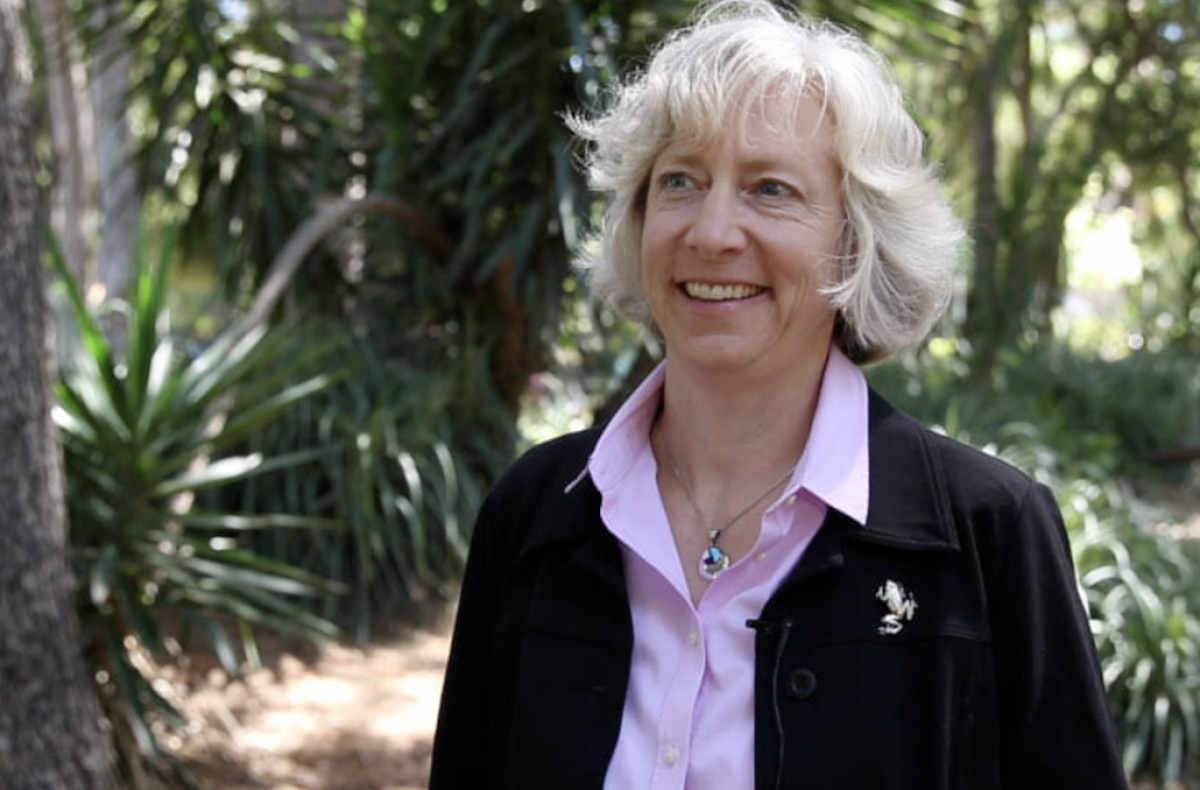The Woods Institute is now part of the Stanford Doerr School of Sustainability
Stanford Biologist Awarded $450,000 Prize for Contributing to Global Environmental Solutions

Gretchen Daily
Jun 14, 2017
By:
Your summer vacation plans have changed – you’re going to the moon. Stanford biologist Gretchen Daily wants you to imagine this scenario, and consider all the Earth-bound organisms you would depend on for food, building materials, pharmaceuticals, and general happiness up there.
“You’d get a list of thousands of species,” said Daily, the Bing Professor of Environmental Science. “Your list probably wouldn’t even include species we rely on indirectly for services such as crop pollination and climate stability.”
For her work on practical actions and policies to secure ecosystems and human well being, Daily was honored with the 2017 Blue Planet Prize, a roughly $450,000 (50 million Japanese yen) award widely considered the Nobel Prize for science that contributes to solving global environmental problems.
“We are down to the last bits of land, and it’s kind of a zero sum game in many places,” Daily said. “On the one hand, we need more nature. On the other hand, the answer is not going to be locking it up in more extensive park systems.”
Daily’s work shines a light on the intimate connections between nature and human health, prosperity, and well being. She developed a field of research called countryside biogeography, which has shown that most parts of the earth are profoundly affected by human activities, but still hold potential to be in harmony with nature. Among the questions Daily seeks to answer: how are human impacts affecting the life-support services we depend on, what plants, animals and places are most important to protect, and how can we create practical incentives to protect them?
“The way people think about nature and the science that can inform our decisions are changing,” Daily said. “This is a moment of revolution.”
Catalyzing that revolution is the Natural Capital Project, a partnership among 200 partners globally, including the Stanford Woods Institute for the Environment, the Stanford Department of Biology, The Nature Conservancy, the World Wildlife Fund and the University of Minnesota Institute on the Environment. Cofounded by Daily, the initiative aims to develop a systematic approach to valuing nature’s benefits, and mainstream this approach into policy, finance and management decisions worldwide.
The Natural Capital Projects melds world-class research on environmental economics with influential conservation programs. Its open-source software is used in more than 80 countries to map and model the value of ecological resources, assess tradeoffs in land- and water-use choices and integrate conservation and human development into investments.
Among it successes, the Natural Capital Project has collaborated with stakeholders to manage risk in major corporations’ global sourcing decisions, inform transportation loan decisions across Latin America, and support massive Chinese government investments in conservation and human development. A Natural Capital Project study offered the first comprehensive map of the entire U.S. coastline that shows where and how much protection communities get from natural habitats such as sand dunes, coral reefs, sea grasses and mangroves.
“Information we derived using Natural Capital Project framework and methods was used in the designation of a new system of protected areas that spans about 30 percent of China and in developing ecological compensation policies,” said Ouyang Zhiyun, Deputy Director of the Research Center for Eco-Environmental Sciences at the Chinese Academy of Sciences. “Gretchen’s innovations have benefited nature and millions of people in China.”
Daily joins two past Blue Planet Prize recipients from Stanford: Harold Mooney, the Paul S. and Billie Achilles Professor of Environmental Biology; and Paul Ehrlich, the Bing Professor of Population Studies Emeritus and mentor to Daily during her time at Stanford as an undergraduate, graduate student and postdoctoral scholar.
“Gretchen turned out to be one of those rare students from whom you learn rather than teach,” Ehrlich said. “I’ve always been immensely proud of her accomplishments, including the Natural Capital Project, the single most important global conservation effort today.”
Daily consider her latest honor a validation not just for her work, but for a larger shift in awareness and action on the issues.
“The Blue Planet Prize sheds a light on the thousands of people driving forward this movement to mainstream the values of nature in our decision-making,” Daily said.
Daily is a senior fellow at the Stanford Woods Institute for the Environment and director of the Center for Conservation Biology.
Contact Information
Christine H. Black
Associate Director, Communications
650.725.8240
ChristineBlack@stanford.edu
Devon Ryan
Communications Manager
650.497.0444
devonr@stanford.edu
Rob Jordan
Editor / Senior Writer
650.721.1881
rjordan@stanford.edu


